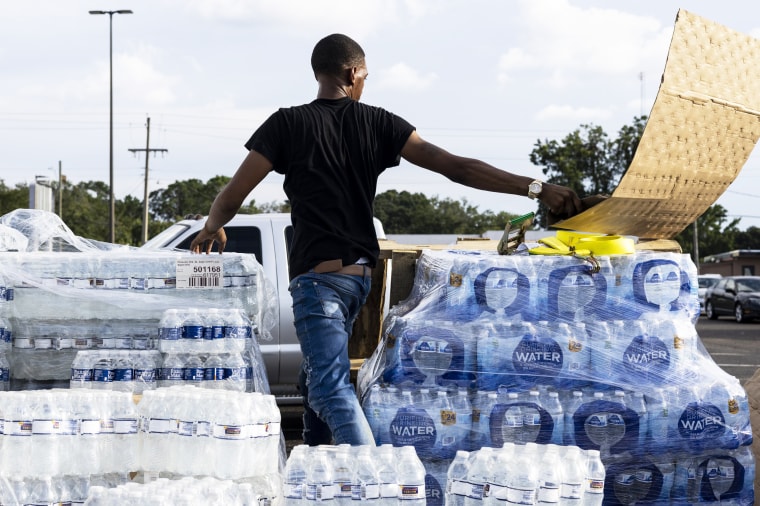Jackson native Gino Womack said he can’t recall a time when there was clean, consistently reliable water in the Mississippi capital city.
The predominantly Black city has dealt with ongoing water troubles with Republican Gov. Tate Reeves declaring a state of emergency late last month. And weeks before that, the city was placed under a boil-water notice.
“Over time, we just learned not to drink the water from the faucet. We had to use a filter or something. But you can understand the desperation when you can’t take a shower with the water, you can’t brush your teeth with the water, you can’t cook with the water,” said Womack, 49, the program director of Operation Good, a community organization.
“We were using no-rinse wipes at the start of this crisis. It was horrible.”
Reeves has called in the state’s National Guard to help mitigate the crisis, noting that the loss of water pressure has “created a condition of disaster and extreme peril.” President Joe Biden approved the state’s emergency declaration request and promised federal aid, sending in the Federal Emergency Management Agency to aid the disaster relief efforts.
The water system emergency in Jackson is a result of complications from the Pearl River flooding, which caused the O.B. Curtis water plant to fail, resulting in low or no water pressure for many residents.
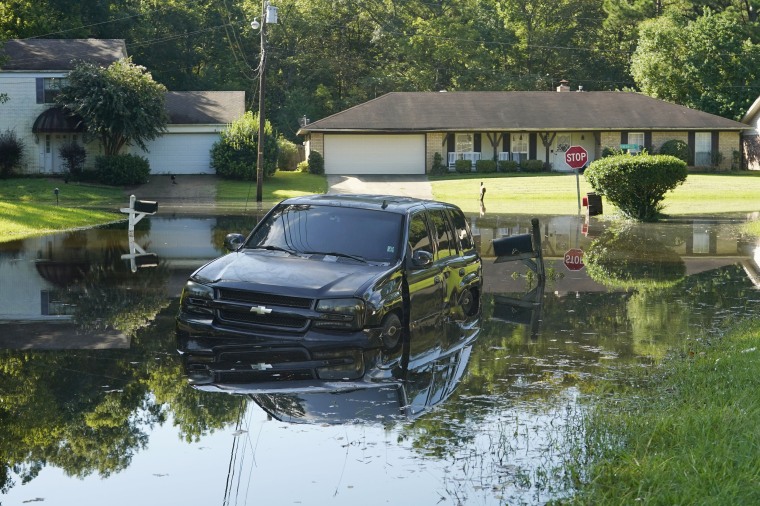
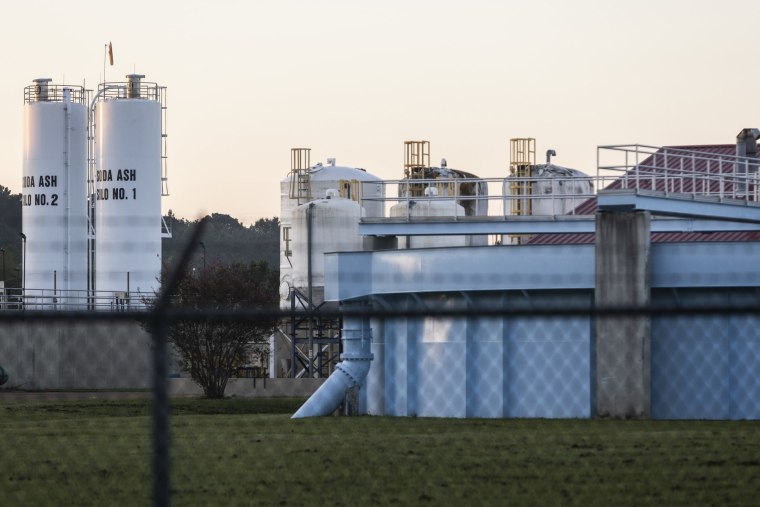
But years of infrastructure issues have made clean, reliable water largely inaccessible, with service disruptions, boil-water advisories, and possible exposure to lead and E. coli.
In 2021, a cold snap left parts of the city without power, further exacerbating the existing issues. Residents long familiar with these challenges have made do as best they can, boiling water, storing it in bathtubs, rationing bottles of water, and sometimes relying on public facilities for water needs.
A 2020 report from the Environmental Protection Agency highlighted the major issues in Jackson’s water system, including failure to replace lead pipes, inadequate staffing and faulty monitoring equipment.
In this latest water crisis, grassroots groups, largely made up of Jackson residents, have stepped up to meet the community’s needs by distributing hundreds of cases of bottled water and other supplies. Groups such as Operation Good, Cooperation Jackson, the Immigrant Alliance for Justice & Equity of Mississippi, and many others have worked tirelessly in recent weeks to provide clean water to residents.
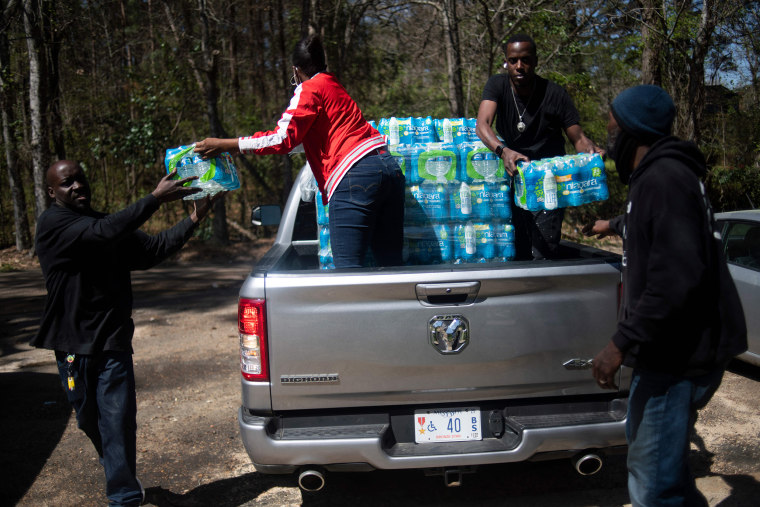
“This started around the beginning of August, and we persevered through that and delivered water to schools,” Womack said of Operation Good. “Now, it’s been more hectic, and a lot of citizens need water, not just the schools. The urgency of needing drinking water is there, panic has kicked in slightly. We’ve been able to buy water and keep citizens in our area supplied. We’ve been unified in this time of need.”
Womack estimates Operation Good has given out more than 700 cases of water to Jackson residents in a single day. He said the work of the organizations has helped to somewhat ease the crisis, but there is still an atmosphere of “panic” in the city of 150,000 residents, nearly 83% of them Black.
Maddie Coates, an organizer with Cooperation Jackson, is familiar with this desperation. The 19-year-old is originally from Jackson but returned to the city three years ago after living in North Carolina. She said she, her four siblings and her parents live together and struggle to cope with the water crisis. While they bathe in the tap water and use it to brush their teeth, they rely on bottled water for cooking and drinking. She said her family can’t even rely on the boiled water to drink. “We have young children in our family,” she said. “And you can’t boil the lead out of the water.”
She and her family, like many of Jackson’s residents, have been living off bottled water for years. With Cooperation Jackson, Coates has helped set up water distribution around the city, providing hundreds of cases of water to residents in a single day.
“It’s kind of like a tornado,” she said of the drive. “The water goes really fast. None of our giveaways have lasted more than two hours. A lot of people are in a state of survival, especially people who have children or other people to take care of. So people have been going all around the city and collecting water everywhere that’s giving it out for free.”
The Mississippi Rapid Response Coalition, comprised of more than 30 organizations in the state, is accepting donations to purchase and distribute water, reusable water containers, filters and other items. The MS Student Water Crisis Advocacy Team, which is composed largely of Jackson State University students, is working to deliver water to people who aren’t physically able to get to distribution sites. Meanwhile, the Mississippi Reproductive Freedom Fund has set up distribution sites to give out water and supplies.
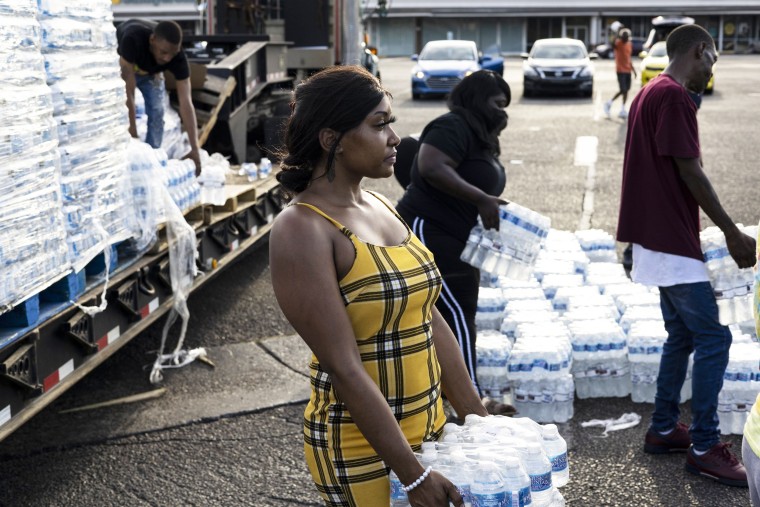
“What is really sad is that we have the resources and the technology to prevent this kind of disaster,” Danyelle Holmes, a Jackson resident and organizer with the Poor People’s Campaign, previously told NBC News. “The neglect to prevent this kind of disaster is a direct failure of state leadership.”
Jackson Mayor Chokwe Antar Lumumba declared a water system emergency in the city late last month. Water pressure in Jackson increased this week, but stored water is lower than ideal. The mayor and the governor have said it would cost a billion dollars or more to fix the water problems in Jackson and, with a diminished tax base, the city simply can’t afford it. The challenges stem from years of failure to adequately invest in the city’s vast water system.
The state is set to receive more than $400 million from the Infrastructure Investment and Jobs Act, mostly through loans and grants through the Environmental Protection Agency. But it’s unclear when the state will receive the funds and how much will be allocated to fixing Jackson’s water issues. And amid all the political talk, residents are working to survive and support one another through the crisis.
Organizers say they’ve long focused on helping one another as they urge leaders to fix the long-standing water system issues. And it’s this sense of community that has helped residents cope with the crisis.
“We’re not going to lose hope,” Coates said. “We choose to come together during times like this instead of being individualistic. We’ve seen beautiful solidarity from everyone.”
